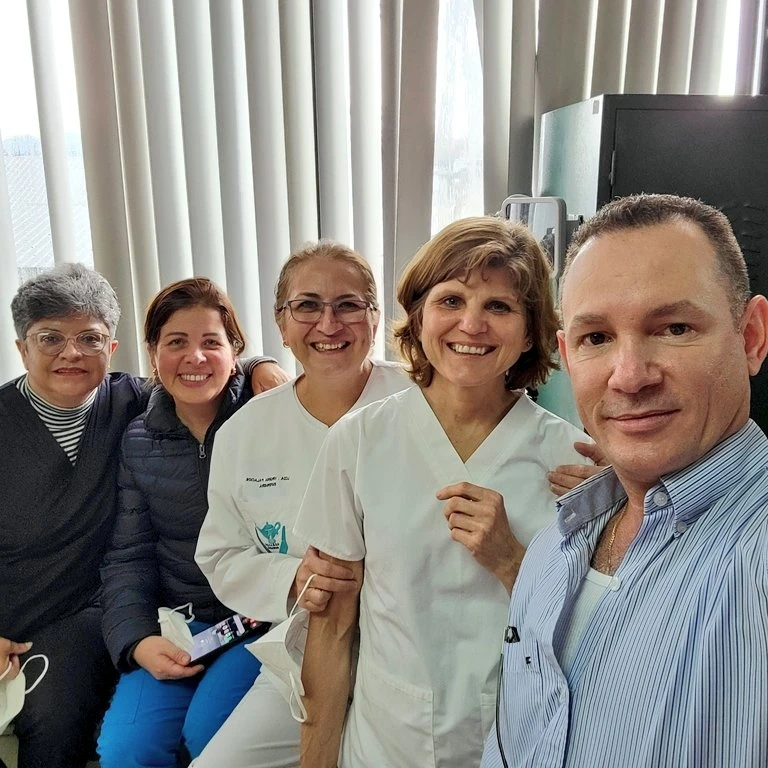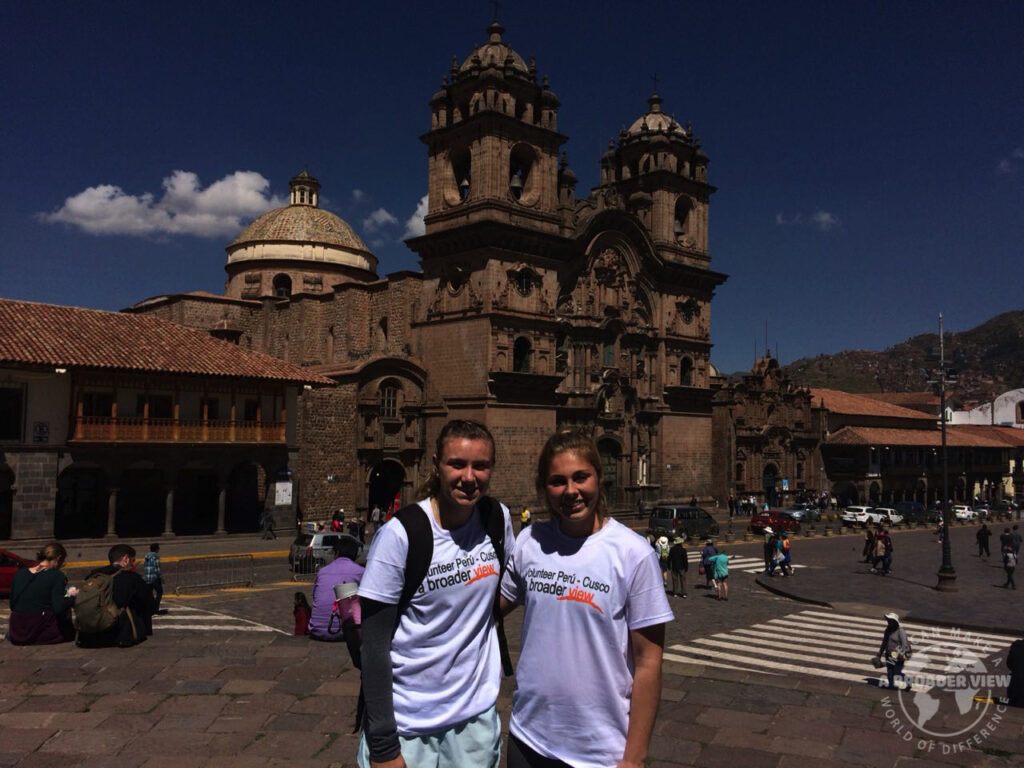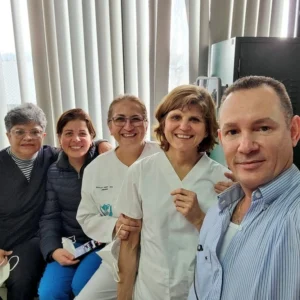Embark on an Adventurous Journey Together
Volunteering abroad has become an increasingly popular trend for families seeking meaningful experiences that combine travel, cultural immersion, and giving back to communities in need.
We explore the new trend of volunteering abroad as a family, highlighting the benefits, considerations, and recommended approaches for a successful and rewarding adventure.
Whether you’re considering a short-term volunteer project or a longer-term commitment, volunteering abroad as a family can create lasting memories, foster personal growth, and make a positive impact on the world.
Table of Contents
- Why Volunteer Abroad as a Family?
- Strengthening Family Bonds
- Cultivating Global Awareness
- Building Character and Values
- Learning Through Hands-On Experience
- Creating Lasting Memories
- Why Choose a Non-Profit Charity Organization?
- Commitment to the Cause
- Local Community Involvement
- Transparency and Accountability
- Safety and Support
- The Pros of Volunteering in Smaller Groups
- Enhanced Flexibility
- Increased Interaction
- Improved Group Dynamics
- Hands-On Engagement
- Personalized Support
- Flexibility in Accommodations
- Efficient Logistics
- Individualized Attention
- Opportunities for Reflection
- Quality Family Time
- Frequently Asked Questions (FAQs)
- Is it safe for families to volunteer abroad?
- What age should children be to participate in volunteer abroad programs?
- How long should a family volunteer abroad?
- Do we need any specific skills to volunteer abroad as a family?
- Can we volunteer abroad as a family if we don’t speak the local language?
- How much does it cost to volunteer abroad as a family?
- Can we combine volunteering with sightseeing and tourist activities?
- Can we volunteer abroad during school breaks?
- What kind of support is provided by volunteer organizations?
- Can families fundraise for their volunteer abroad experience?
- Conclusion
Why Volunteer Abroad as a Family?
1. Strengthening Family Bonds
Volunteering abroad as a family offers a unique opportunity to strengthen the bonds between family members. Working together towards a common goal, facing new challenges, and experiencing different cultures can create shared memories and deepen the connection among family members.
2. Cultivating Global Awareness
Exposing children to diverse cultures, lifestyles, and global issues at a young age helps cultivate their global awareness and empathy. By immersing themselves in a new environment, families can gain a broader perspective, challenge preconceptions, and develop a deeper appreciation for cultural diversity.
3. Building Character and Values
Volunteering abroad as a family provides an excellent platform for character-building and instilling important values. Working together to make a difference teaches children the importance of compassion, empathy, and social responsibility, fostering their personal growth and development.
4. Learning Through Hands-On Experience
Participating in volunteer projects abroad allows families to learn through hands-on experiences. Whether it’s building homes, teaching English, or conserving wildlife, families can acquire practical skills, gain a deeper understanding of global issues, and develop a sense of achievement by directly contributing to a cause.
5. Creating Lasting Memories
The memories created during a family volunteer abroad experience are unlike any other. From shared laughter and overcoming challenges to cultural exchanges and heartfelt connections with locals, the experiences gained can create lifelong memories and stories to be cherished for years to come.
Why Choose a Non-Profit Charity Organization?
When considering volunteering abroad as a family, it is crucial to choose the right organization to ensure a meaningful and ethical experience. Opting for a non-profit charity organization over a for-profit company has several advantages:
- Commitment to the Cause: Non-profit charity organizations are driven by a mission to make a positive impact rather than solely focusing on financial gains. Their commitment to the cause ensures that your efforts contribute directly to helping communities in need.
- Local Community Involvement: Non-profit organizations often have established relationships and partnerships with local communities, ensuring that projects are community-driven and sustainable. This approach fosters empowerment and respect for local cultures and traditions.
- Transparency and Accountability: Non-profit organizations are typically more transparent with their financials and operations, allowing you to have a clearer understanding of how your contributions are being utilized. Additionally, they adhere to stricter ethical guidelines, ensuring accountability in their practices.
- Safety and Support: Non-profit charity organizations prioritize the safety and well-being of their volunteers. They provide comprehensive support, including pre-departure guidance, in-country orientation, and 24/7 emergency assistance, ensuring that families can embark on their volunteer journey with peace of mind.
The Pros of Volunteering in Smaller Groups
While volunteering abroad can be done in both large and small groups, there are several advantages to choosing a smaller group setting:
- Enhanced Flexibility: Smaller groups offer more flexibility in project selection, allowing families to choose projects that align with their interests, skills, and availability. This flexibility ensures a more tailored and personalized experience for each volunteer, catering to individual family members’ preferences and passions.
- Increased Interaction: Smaller groups facilitate more intimate interactions with local communities. With fewer volunteers, families have the opportunity to engage on a deeper level, forge meaningful connections, and gain a better understanding of the local culture and way of life.
- Improved Group Dynamics: Smaller groups tend to foster stronger group dynamics and cohesion. With fewer members, it becomes easier to collaborate, communicate, and make decisions collectively. This enhances the overall volunteer experience and promotes a sense of unity within the family.
- Hands-On Engagement: In smaller groups, each family member can actively participate and contribute to the volunteer project. Whether it’s building houses, assisting in healthcare clinics, or working on conservation efforts, smaller groups allow everyone to have a more hands-on experience and make a tangible impact.
- Personalized Support: Smaller groups often receive more personalized support from project coordinators and local staff. This ensures that families receive adequate guidance, training, and supervision throughout their volunteer journey, maximizing their learning and growth opportunities.
- Flexibility in Accommodations: With smaller groups, accommodation options can be more flexible. Families may have the option to stay in homestays or local guesthouses, providing a more immersive experience and opportunities for cultural exchange.
- Efficient Logistics: Smaller groups tend to have more efficient logistics in terms of transportation, meal arrangements, and project coordination. This allows families to make the most of their time and resources, optimizing their volunteer experience.
- Individualized Attention: In smaller groups, volunteers can receive more individualized attention from project leaders and local staff. This enables families to learn and develop new skills, receive feedback, and grow personally and professionally.
- Opportunities for Reflection: Smaller groups often provide more opportunities for reflection and meaningful discussions among family members. These moments of reflection allow families to process their experiences, share insights, and deepen their understanding of the global issues they are addressing.
- Quality Family Time: Volunteering in a smaller group setting allows families to spend quality time together while making a difference. It provides a unique opportunity to bond, collaborate, and create shared memories that will be cherished for a lifetime.
Frequently Asked Questions (FAQs)
- Is it safe for families to volunteer abroad?
- Yes, with proper research, planning, and choosing reputable organizations, volunteering abroad can be a safe experience for families. Non-profit charity organizations often prioritize safety and provide necessary support to ensure a secure volunteer journey.
- What age should children be to participate in volunteer abroad programs?
- The age requirements vary depending on the organization and the nature of the volunteer project. Some programs may have minimum age limits, while others may have specific programs designed for younger children. It’s best to research and find programs that cater to the ages of your children.
- How long should a family volunteer abroad?
- The duration of a family volunteer program can vary. It can range from a week-long program to several months. The ideal duration depends on various factors such as the project’s nature, family availability, and the desired level of cultural immersion.
- Do we need any specific skills to volunteer abroad as a family?
- Not necessarily. Many volunteer projects welcome families without specific skills or qualifications. However, certain projects may require specific expertise, such as medical missions or construction projects. It’s essential to choose a project that aligns with your family’s skills and interests.
- Can we volunteer abroad as a family if we don’t speak the local language?
- Yes, many volunteer programs cater to English-speaking families and provide necessary translation and support. While knowing the local language can be beneficial, it is not always a requirement. Clear communication channels and translators are often provided to facilitate interaction with local communities.
- How much does it cost to volunteer abroad as a family?
- The cost of volunteering abroad varies depending on several factors, including the destination, program duration, accommodations, and inclusions. Families should consider program fees, flights, visas, insurance, and personal expenses when budgeting for their volunteer experience.
- Can we combine volunteering with sightseeing and tourist activities?
- Many families choose to combine volunteering with sightseeing and tourist activities. It’s important to plan your itinerary accordingly, ensuring that you have enough time to engage in meaningful volunteer work while also exploring the local culture and attractions.
- Can we volunteer abroad during school breaks?
- Yes, school breaks can be an ideal time for families to embark on a volunteer abroad journey. It provides an enriching and educational experience for children while allowing the family to bond and create lasting memories.
- What kind of support is provided by volunteer organizations?
- Reputable volunteer organizations provide comprehensive support to families, including pre-departure guidance, orientation, project coordination, accommodation arrangements, and 24/7 emergency assistance. They are there to ensure a smooth and rewarding volunteer experience.
- Can families fundraise for their volunteer abroad experience?
- Yes, families can fundraise to cover the costs of their volunteer abroad experience. Many organizations provide resources and guidance on fundraising strategies, enabling families to reach out to their communities, friends, and relatives for support.
Conclusion
Volunteering abroad as a family is a growing trend that offers numerous benefits for both the family members and the communities they serve. From strengthening family bonds to fostering global awareness and personal growth, this unique experience creates lasting memories and instills valuable life lessons.
By choosing a reputable non-profit charity organization and opting for smaller group settings, families can ensure an ethical and impactful volunteer journey. So, why not embark on an adventurous journey together as a family and make a positive difference in the world through volunteer abroad experiences?
Remember, volunteering abroad as a family requires careful planning, research, and consideration of various factors. But with the right approach, it can be a transformative and life-changing experience that brings your family closer while making a meaningful impact on communities in need.
-
Volunteering Abroad with Medical Missions: Make a Difference Today

Join medical group trips, Nurses Without Borders, and Dentists Without Borders to make a difference in underserved communities worldwide. Learn about the countries where these programs operate and read real-life experiences from volunteers. Volunteering overseas is an excellent opportunity to make a difference in the lives of others while experiencing new cultures and forging unforgettable…
-
Embrace Overseas Service | Transform Lives Through Global Volunteerism

International Volunteering: Discover Meaningful Travel and Transform Lives with A Broader View
-
A World of Opportunities: Unveiling the Benefits of International Volunteer Programs

Discover numerous benefits of international volunteer programs and unleash a world of rewarding opportunities with our in-depth guide.



